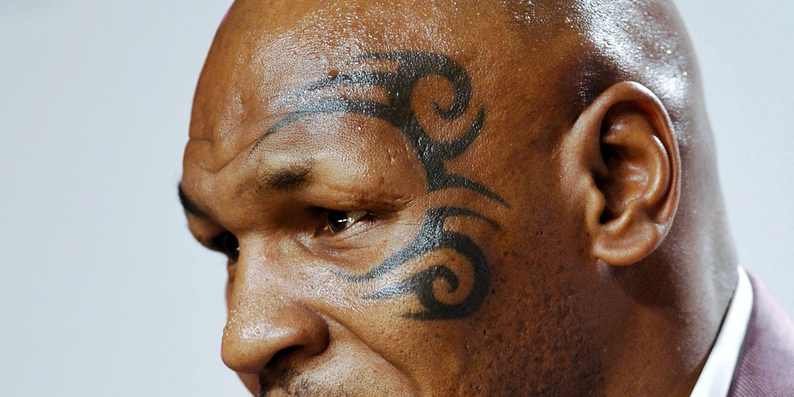
 I have little interest in getting a tattoo. Maybe it’s a matter of taste—I prefer expressing myself with music rather than body markings. Or maybe it’s my upbringing. Without a single tattoo in my immediate family there’s a sense of inertia working against me.
I have little interest in getting a tattoo. Maybe it’s a matter of taste—I prefer expressing myself with music rather than body markings. Or maybe it’s my upbringing. Without a single tattoo in my immediate family there’s a sense of inertia working against me.
But my wariness of tattoos is likely the fruit of a different root; I’m the unlucky host to the parasite of indecisiveness. Spend enough time around my school and you’ll likely see me trolling the vending machines, struggling to choose a snack. Or menus—don’t get me started on menus. If I struggle to choose at the McDonald’s drive-thru, how much worse will I fare in a tattoo parlor? Maybe if I were edgier…but no. My style is more Michael J. Fox than Mike Tyson, more Steve McQueen than Steve-O.
A look at my tattooed friends, however, sheds light on the custom. Their tattoos can be divided into two camps: the meaningful and the zany. Most have intentionally meaningful ink: some with Bible verses, some in memory of loved ones. My zanier friends, on the other hand, sport intentionally playful or meaningless tattoos. One particular friend takes the cake for incoherent ink. When asked what his cuneiform tattoo meant, he replied matter-of-factly, “Not sure…I didn’t want to get a tattoo that meant anything—you know, in case I disagreed with it later in life.”
Ironically, the aforementioned ‘meaningless’ tattoos convey far more meaning than their owners may suggest. A silly tattoo presumes that its owner is also silly. While more overtly meaningful tattoos give permanence to a specific point of passion, the ‘meaningless’ tattoos immortalize a cavalier attitude.
If my friends are any indication, then tattoos are intended, at least in part, as permanent manifestations of one’s temporary identity. But why should we care…where’s the selling point? Well, just ask the insurance industry. As any Intro-to-Marketing class will teach you, AARP doesn’t sell home and auto policies; they sell certainty in an uncertain world. The same can be said of tattoos. Where insurance companies protect us from monetary loss, tattoos hedge against identity loss. Tattoos offer an ever-present answer to the brooding question that everyone yearns to answer: “Who am I?”

Andrew Testa/The New York Times, “Who Gets a Game of Thrones Tattoo?”
While fear of wildfires might push us to splurge on a new insurance policy, we’ll stop at nothing to relieve our fear of identity loss. After all, the loss of one’s identity is among the most painful of human experiences, both for the loser of identity and for those impacted. Without an identity upon which to anchor our experiences we float adrift in the sea of circumstance, fully at the mercy of the waves. Without some sense of an identity we wander the wilderness with no destination, weathering the harsh conditions without purpose or cause.
To witness this experience in another is heartbreaking. To find yourself a victim of this decay is to experience utter loss of control. Such is the tragedy of Alzheimer’s; rather than the degradation of the body inflicted by most diseases, Alzheimer’s erasure of memory leaves its victims disoriented and alone. Alzheimer’s doesn’t stop at robbing us of purpose in our life’s story—it burns the book.
And so, where the mind and identity are seemingly impermanent, the skin can be (slightly) less-so. Present convictions can be locked-in for life with a tattoo, serving as an exercise of the will over the uncertainty of tomorrow.
Alas, for all the promised permanence of tattoos, ink comes up short. Not only will ink fade, but at their best, tattoos only guarantee you’ll remember your past self. At their worst, they won’t let you forget it.

Melissa Golden/The Guardian. “Erasing the hate”
Despite these shortcomings, I’d be remiss not to invoke the exception—the one tattoo that can, in fact, deliver on its promise for permanence:
Can a mother forget the baby at her breast
and have no compassion on the child she has borne?
Though she may forget,
I will not forget you!
See, I have engraved you on the palms of my hands
– Isaiah 49:15-16
Though I may be disinclined to tattoos, it seems that God is fond of body markings. He has engraved us into His hands so that we shall never be forgotten. My identity—my adoption into God’s family—has already been preserved, permanently marked on the flesh of the Holy One. This mark, eternally etching our identities in Christ, is not of ink but of scar tissue, not of needles but of nails. Pierced by our transgressions, these redeeming wounds are for our preservation.
So when Christ asks Thomas to “put your finger here; see my hands,” He offers more than proof of resurrection. He’s showing Thomas the only tattoo—the only identity—that will never fade. Luckily for us, it’s a masterpiece.

COMMENTS
Leave a Reply












